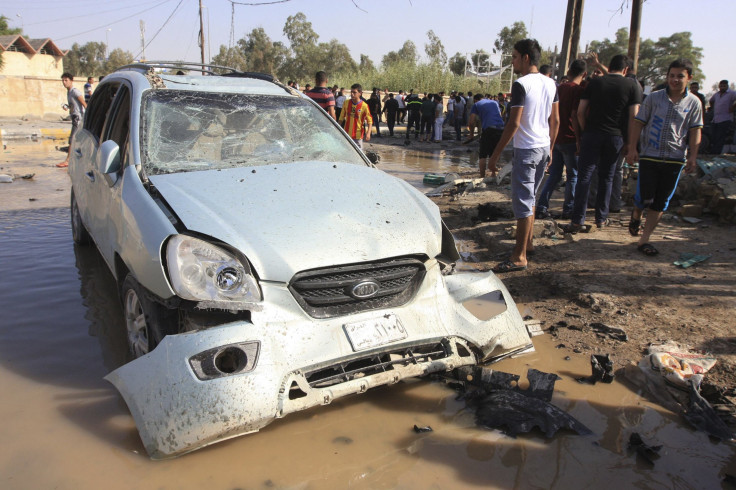Uptick In ISIS Car And Suicide Bombs In Baghdad Signals Desperation, Experts Say

At least 435 people have been killed in Iraq in car and suicide bombings since the beginning of the month, with an uptick in the number of these attacks since the beginning of September, according to Iraq Body Count, a monitoring group tracking civilian deaths. Most of those attacks occurred in Baghdad and are the work of Islamic State militants. But what may be seen as a show of force by ISIS is in fact the opposite, experts said.
“Suicide attacks are acts of desperation,” said Max Abrahms, a terrorism expert and professor at Northeastern University.
Shiite militias supported by the Iraqi government have circled Baghdad to keep ISIS extremists from entering the city limits. Unable to take Baghdad by frontal assault, with advancing fighters supported by tanks, the Sunni militant group has turned to what may be its last resort.
The most recent round of attacks took place in Baghdad Monday. A suicide bomber blew himself up outside a Shiite mosque during afternoon prayers, killing 17 people. Meanwhile, a triple car bombing hit the Shiite holy city of Karbala, killing 16 people.
Senior U.S. politicians and military analysts have said ISIS does not have the capability to take Baghdad. But within the past week, the militant group has shown it is able to wage a devastating fight against not only security officials, but civilians, without losing any of its own trained fighters or using ammunition. The suicide and car bomb attacks can be carried out by people who have not been trained as fighters, and also do not require ISIS to use up valuable ammunition.
"Although it is true that suicide terrorism increases the lethality of the attack, it doesn’t actually translate into higher rates of political concessions," Abrahms said. "The government in Baghdad is not going to be softened by suicide terrorism. It is going to harden its resolve to crack down on the perpetrators."
During the Iraq war, U.S. and Iraqi security forces deployed troops to neighborhoods in Baghdad to disarm improvised explosive devices and car bombs. Now, the Iraqi military does not have the personnel to handle the increased number of explosives in the city. Australia announced Monday it would send as many as 600 personnel to Iraq to help the army in its counter terrorism efforts.
Despite U.S. and now Australian forces helping the Iraqi military in its fight against ISIS, experts said the Sunni militant group is likely to continue using its new urban warfare strategy in Baghdad.
Mia Bloom, a professor at the University of Massachusetts Lowell and the author of "Dying to Kill: The Allure of Suicide Terror," said with each ISIS bomb attack, the group gains 10 to 12 new members.
© Copyright IBTimes 2025. All rights reserved.





















